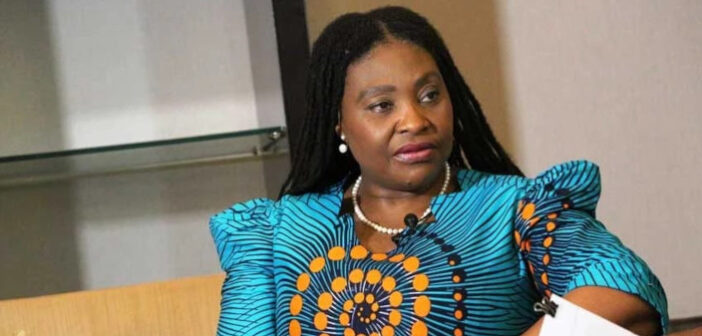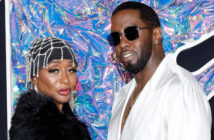The 2024 Legends & Legacy All Africa Music Awards will honour South African music legend Yvonne Chaka Chaka in June. Chaka Chaka, dubbed the “Princess of Africa,” has been a mainstay of the entertainment business for forty years and has seen many changes in the music landscape.
Chaka Chaka discussed her reflections on her remarkable career and her comments on South Africa’s thirty years of democracy in an interview with IOL Entertainment.
“30 years of democracy is no minor accomplishment. It has taken a long time to get to this point of freedom, therefore it’s critical to cherish and keep in mind what our ancestors intended for us, Chaka Chaka stated.
Despite praising the advancements, Chaka Chaka brought attention to persistent social problems. “Many things have changed since freedom, but two-year-olds are still being molested, elderly are still being reprimanded and raped, and young people are still not allowed to wear miniskirts in public. “Is this the democracy we yearned for?” you ask yourself.
Leaders and people alike were urged by Chaka Chaka to re-examine the spirit of solidarity that prevailed throughout apartheid. “We watched out for each other during the Apartheid era.” Thirty years later, why can’t we accomplish that now?
Chaka Chaka pointed out that the creative business still lacks attention and support, despite tremendous progress. “The creative industry needs more support given its contributions to South Africa and the world, even though a lot has been done in the last 30 years.”
She encourages, young, aspiring artists to take advantage of the equal playing field that currently exists. “Choose your aspirations, young individuals who wish to work in the creative industries—whether it be animation, sculpting, music, or filmmaking. The government and large corporations must help us. Individuals desire a helping hand up rather than freebies.
Chaka Chaka highlighted the creative industries’ potential for economic growth. “The industry generates revenue, which enables artists to have retirement annuities, pay taxes, and contribute to UIFs. We have to make sure they don’t pass away in poverty.
Chaka Chaka’s words resound as a call to action for increased support and acknowledgment of the creative arts, which continue to influence South Africa’s cultural landscape, as she gets ready to accept her well-earned honour.
IOL Productions
Biography
Yvonne Chaka Chaka (born Yvonne Machaka on 18, 1965) is a renowned South African singer, songwriter, entrepreneur, humanitarian and educator. She is affectionately known as the “African Princess”.
Chaka Chaka was born in Dobsonville, Soweto to a Swazi mother and a Pedi father. Her father, an accomplished musician, was 11. Despite growing up in poverty during the apartheid era, raising her three daughters on a single mother’s wages as a domestic worker, a love of music motivated Chaka Chaka to flourish at an early age
she began her professional music career in 1984, at the age of 19, after being discovered by Phil Hollis of Defone Records. Her debut album “I’m in Love With a DJ” made her a star in mbaqanga music, with hits like “I’m Burning Up”, “I Cry for Freedom”, “Sangoma”, “Motherland” and one of the ever-popular “Umkombothi.”
In her illustrious career spanning over three decades, Chaka Chaka has released several award-winning albums including “Burning Up,” “Sangoma,” “Who’s the Boss”, “Motherland,” “Be Proud to Be Africa,” “Thank You Mr. DJ,” and many others.
Chaka Chaka has shared the stage with global superstars such as Bono, Angelique Kidjo, Annie Lennox, Yousou N’Dour, Queen, Johnny Clegg, Miriam Makeba and Hugh Masekela. He has performed for world leaders, including Queen Elizabeth II, Nelson Mandela and several South African presidents.
Mandela, who affectionately called her his “beloved daughter”, credited Chaka Chaka’s music with standing up to others during his imprisonment on Robben Island
On the issue of her music being pirated in Nigeria during the peak of her carreer, she stated in 2010, that she would continue to adore Nigerians irrespective of the piracy issue but that she would no longer allow her work be so pirated any longer. Her words, “I still love Nigerians”, (speaking in Yoruba) “Mo fe ran yin ni Nigeria pupo” (I still love you in Nigeria so much). The fact that they pirated my works does not mean I should hate other Nigerians. They are still my brothers because we are all Africans.”
When she met with Afrobeats star, D’Banj at an event in Johannesburg, 2010, she said: “And today I was so happy to meet younger Nigerian artistes like D’Banj in South Africa. I am particularly happy that South Africa is opening up avenue for all Africans to come together and collaborate on the future of the continent.”
Chaka Chaka came to limelight when she became, as a young performer, the first black child to appear on South African television in 1981. She then went on to develop her creative talents and expanded her repertoire which entails: music performer; record producer;; talk radio and television shows; and appearances in several South African television dramas.
In addition to her musical career, Chaka Chaka is a dedicated humanitarian and philanthropist. She has served as a UNICEF Goodwill Ambassador against Malaria and as a Roll-Back Malaria National Ambassador. She also founded the Princess of Africa Foundation to raise awareness and funds to fight malaria and other diseases in Africa.




